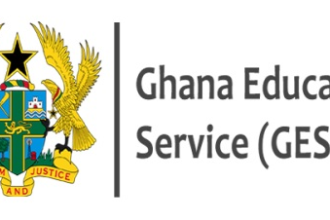The Reverend Dr Kwabena Opuni-Frimpong, a Lecturer at the Kwame Nkrumah University of Science and Technology, has called on the Ministry of Education to address the current public mistrust surrounding the Comprehensive Sexuality Education (CSE) soon to be rolled out in Ghanaian schools.
He said the sector Minister and the Ghana Education Service (GES) needed to come out quickly to explain what the new CSE guideline was all about and how different that guideline was from the other CSE programmes being introduced in countries like South Africa, Canada, and United States of America, among others.
A publication titled: “Guidelines for Comprehensive Sexuality Education in Ghana” said to be rolled out from Pre-school to Senior High School levels, targeting children from age four to 18 years popped out over the weekend.
Funded by the UNFPA for Ghana, the guide on Comprehensive Sexuality and Reproductive Health Education (CSRHE) had been designed for both in school-CSRHE and for Community-Based CSRHE, organised according to grade and age modules.
The guide has, however, attracted much public reactions with some activists allegedly, describing it as an agenda to indoctrinate Ghanaian children into the Lesbian, Gay, Bisexual, Transgender (LBGT) agenda.
Speaking to the Ghana News Agency in an interview, Rev Opuni-Frimpong said similar CSE policies being introduced in other European and African countries had been known to be associated with the LBGT agenda and so people’s legitimate agitations needed to be addressed by the Government.
“This guideline has created a lot of public mistrust and so the Minister must come out to explain how different Ghana’s own would be”, Dr Opuni-Frimpong noted.
He said even though a section of the faith-based organisations and institutions including the Christian Council of Ghana, the Catholic Bishop Conference, the Ghana Pentecostal and Charismatic Union and Muslim Council among others, have been assured by Dr Matthew Opoku-Prempeh, the Minister of Education, in a meeting held about a month ago that the CSE, as being introduced in Ghana would factor “our cultural and religious values, but we need to know how different ours will be”.
“At the end of the day, we must carry the people along-either we change the name from Comprehensive Sexual Education into something that reflect our Ghanaian situation or they must continue with public education and let the people appreciate how different our CSE is, from what is happening in other countries”, Rev Opuni-Frimpong stated.
Meanwhile, the GES has assured Ghanaians that the CSE under the new Standard Based Curriculum do not seek to throw out the advocacy for sexual abstinence, but rather to reinforce it.
The GES has explained that the goal of the CSE was rather to equip the school children with age and cultural appropriate information to explore and nurture positive values and attitudes towards their sexual and reproductive health.
A statement issued in Accra by Ms Cassandra Twum Ampofo, the Head of Public Relations Unit, GES, and copied to the Ghana News Agency, explained that the new CSE guidelines would rather “help develop the children’s self-esteem, respect, for human rights and gender equality”.
The CSE guideline rather sought to help students to make informed decisions about their health, with emphasis on Ghanaian cultural values and norms, it said.
According to the statement, the implementation of the new curriculum has nothing to do with LGBT issues, masturbation or explicit displaying or labelling of intimate body parts.

Explain the Comprehensive Sexuality Education guideline to Ghanaians – Opuni-Frimpong
Leave a Comment















